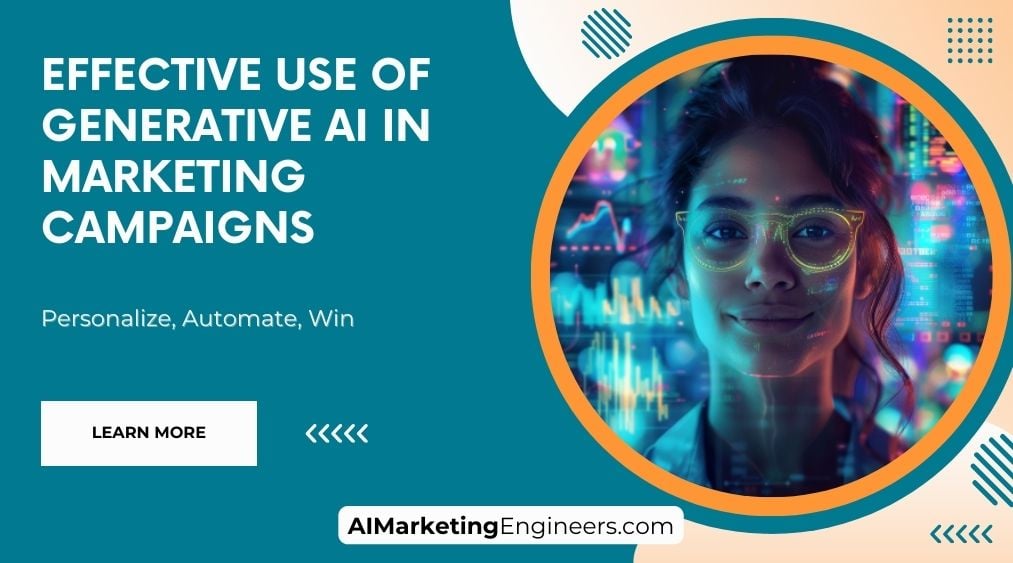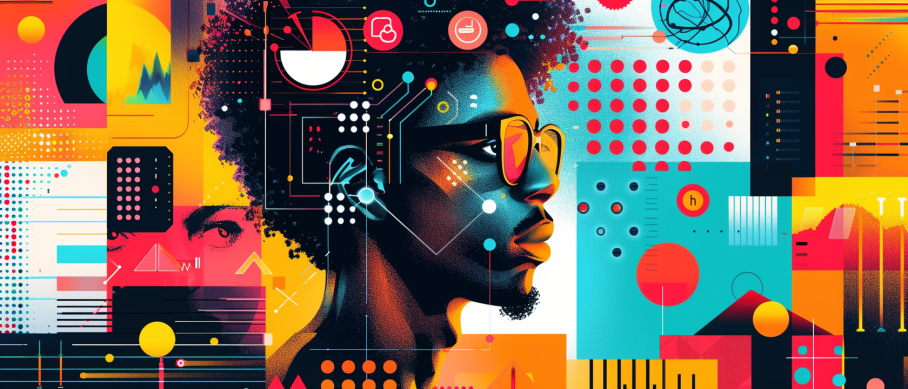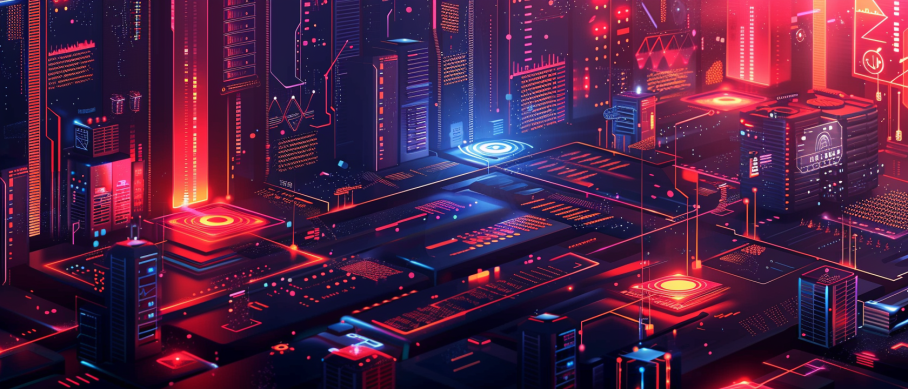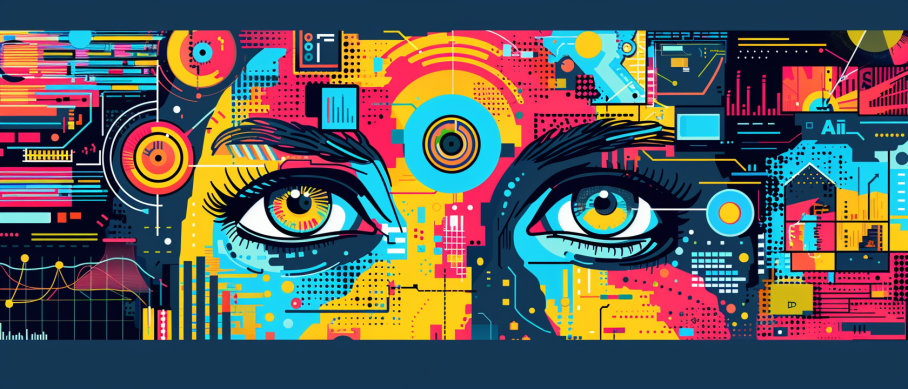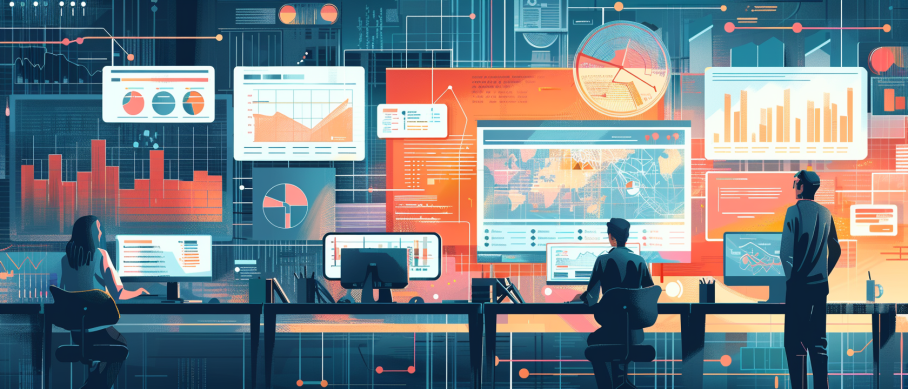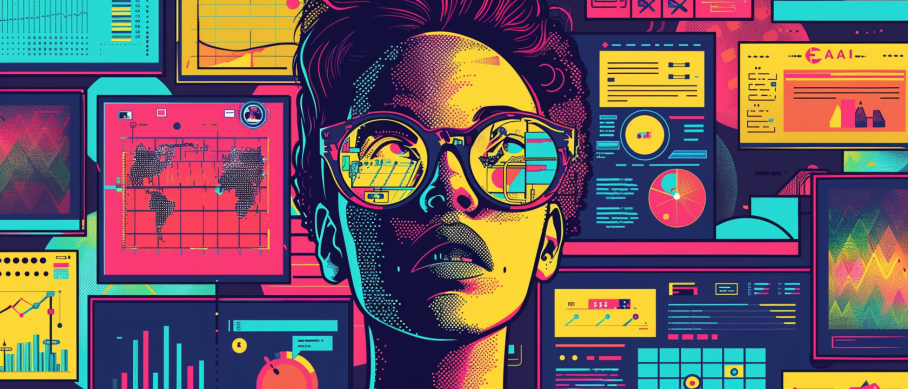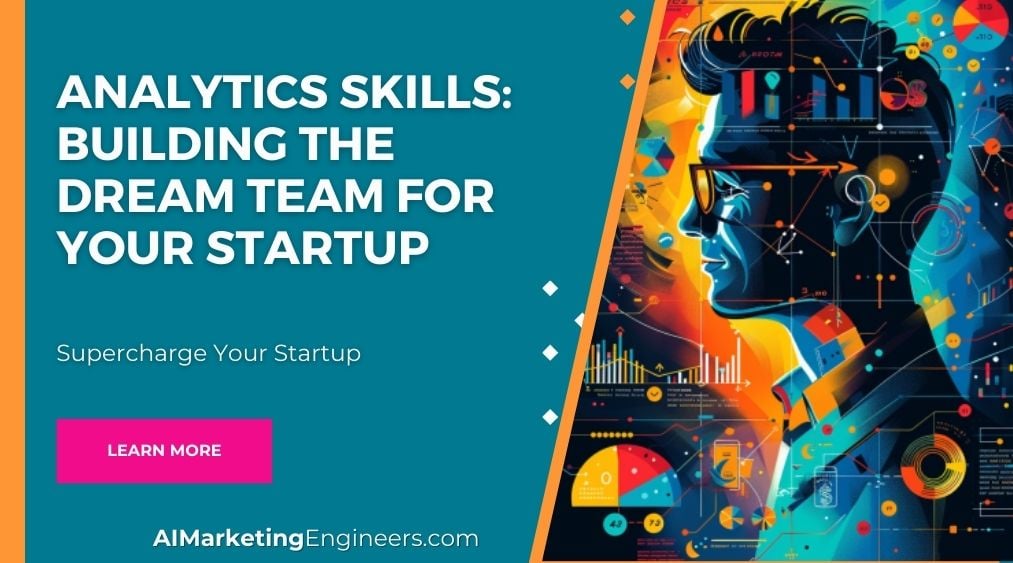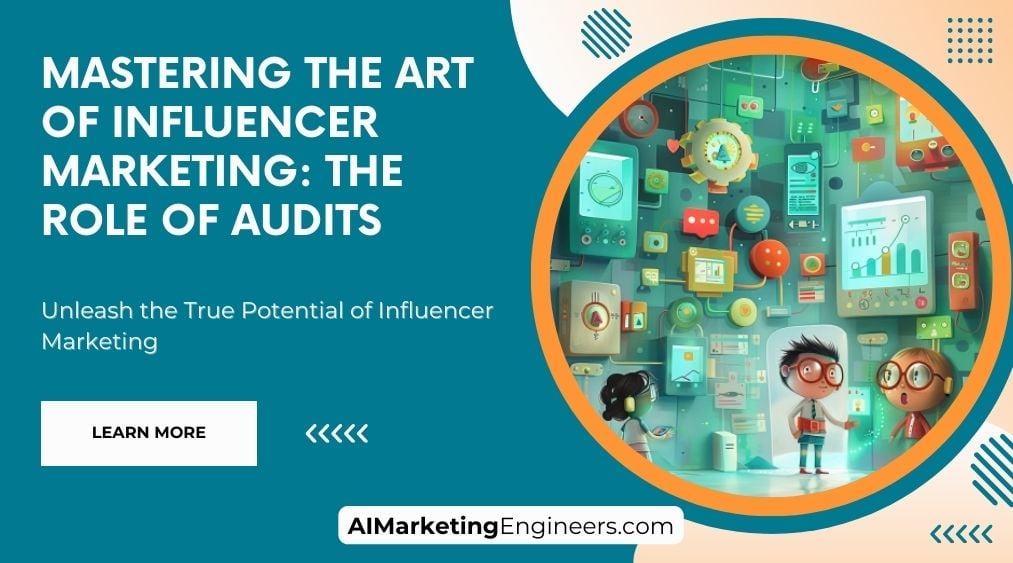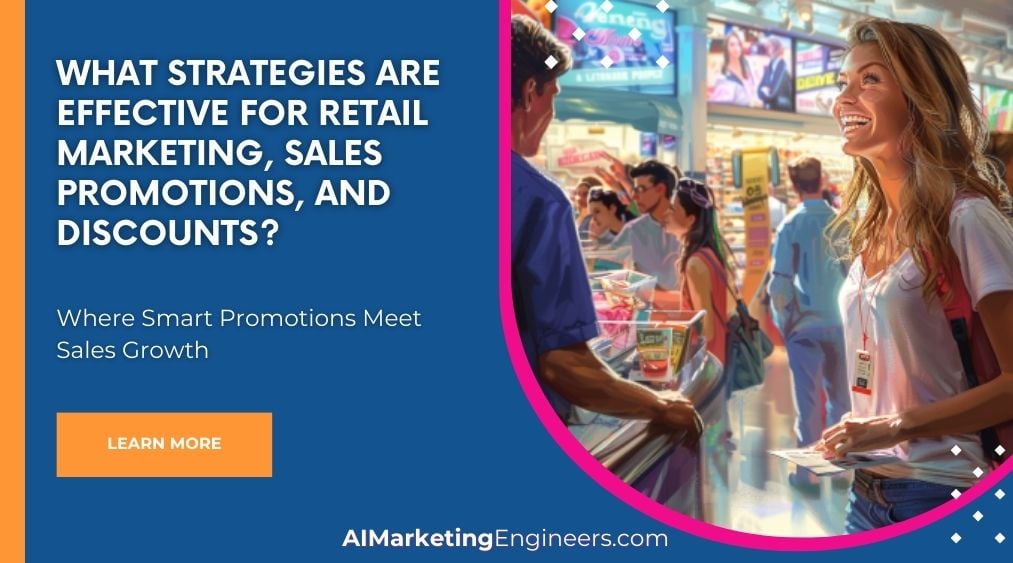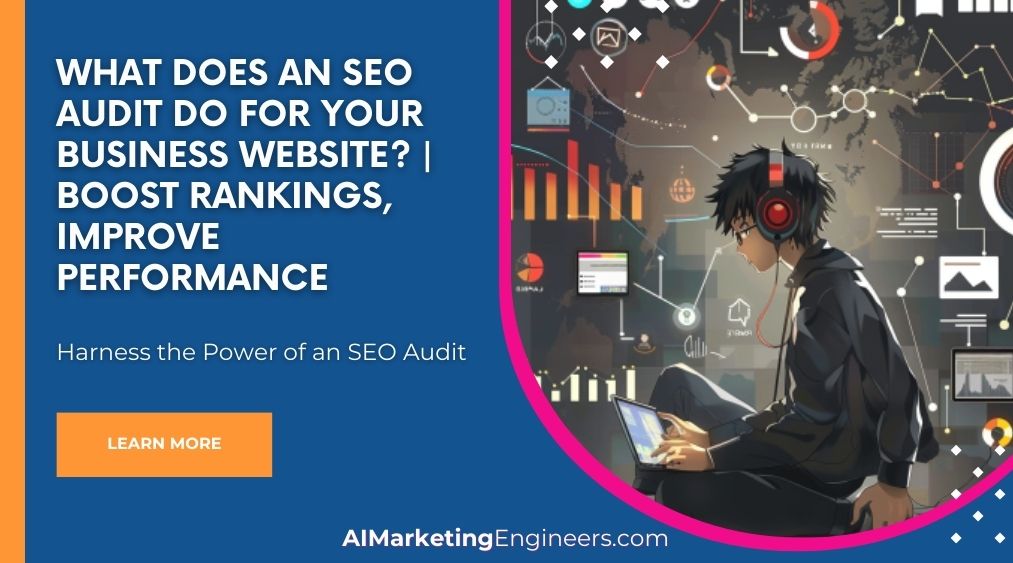Key Takeaways
✅ Focus on Creativity and Personalization: Generative AI turns the tedious process of content creation into an innovative, personalized experience. Imagine slashing your content development time in half while doubling the relevance to your audience. From crafting eye-catching ads to generating unique blog posts, learn how harnessing the power of AI can elevate your brand's creative output and make every message feel like a one-on-one conversation.
✅ Maintain Authenticity and Human Touch: While automating the conversational side of marketing sounds appealing, remember, technology cannot fully replace the warmth of human interactions. Discover strategies to blend AI's efficiency with the genuine touch of human creativity, ensuring your brand remains relatable and your messages resonate deeply with your audience—building a brand that not only talks but listens.
✅ Leverage AI for Data Analysis and Insights: Dive into the capabilities of generative AI to sift through and analyze massive data sets, unveiling insights into customer behavior and market trends at a speed and accuracy unmatchable by humans alone. Use these insights to forecast trends, tailor campaigns, and allocate resources more effectively, significantly boosting your ROI.
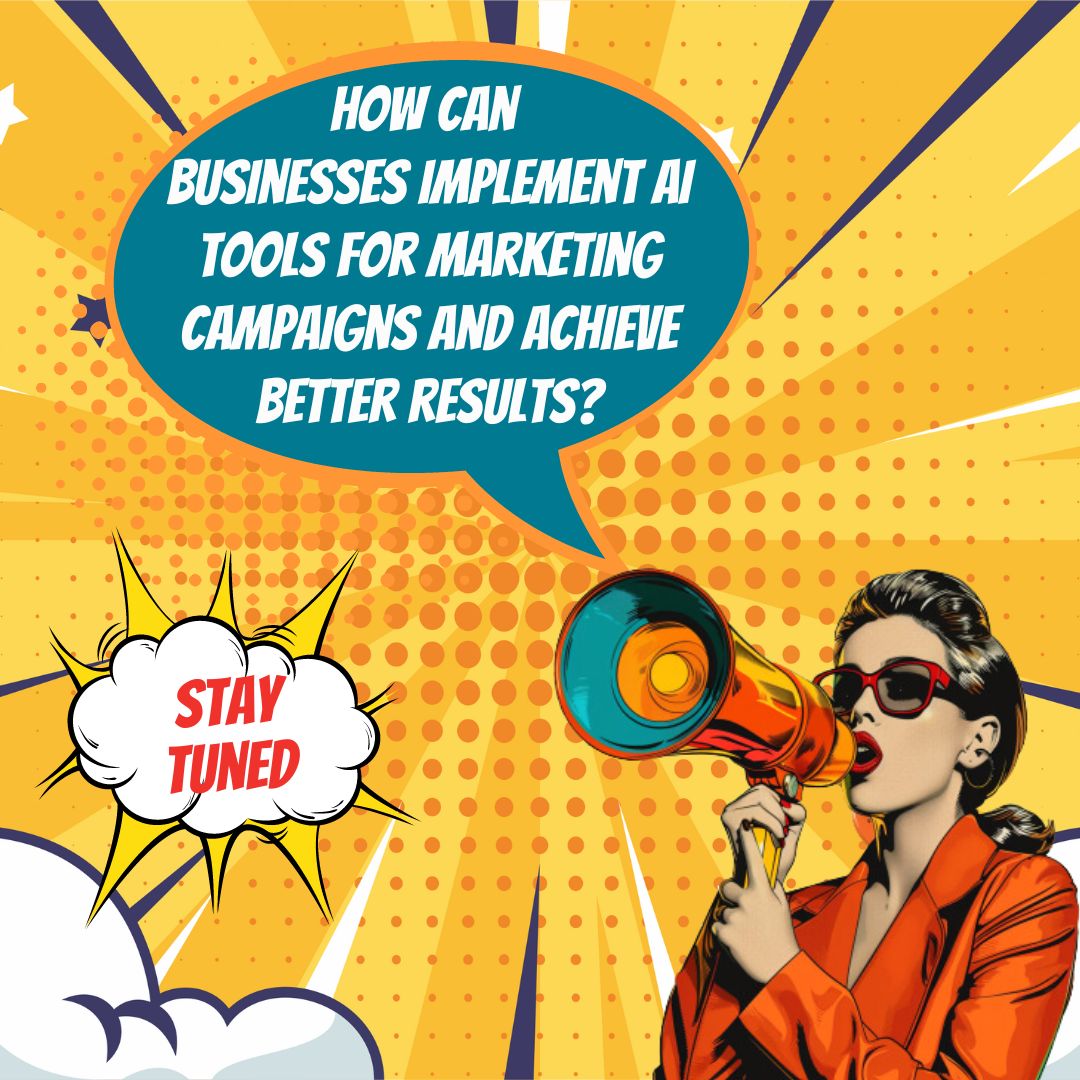
Introduction
Have you ever wondered how generative AI in marketing campaigns could catapult your brand into the future? In a digital landscape overflowing with content, standing out is more crucial—and challenging—than ever. Enter generative AI: a game-changer offering the promise of limitless creativity, unprecedented personalization, and in-depth insights unlike any the marketing world has seen.
At its core, generative AI embodies a transformational tool in content creation, data analysis, and audience engagement, driving efficiencies and novel experiences that can significantly enhance return on investment (ROI). But how can we wield this powerful technology ethically while steering clear of potential pitfalls? This article peels back the layers of generative AI's capabilities and explores its implications for marketers seeking to remain at the forefront of innovation.
Stay tuned as we delve into cutting-edge strategies and best practices, empowering you to leverage AI in your marketing campaigns effectively. Prepare to uncover actionable insights and groundbreaking information that could redefine your approach to digital marketing. The future is now, and the possibilities are endless.
Top Statistics
| Statistic | Insight |
|---|---|
| Generative AI Market Value: Expected to exceed $66 billion by the end of 2024. | This underscores the rapid acceleration of the generative AI technology, highlighting a significant opportunity for marketers to invest in. |
| User Engagement: 73% of the Indian population surveyed is using generative AI. | Demonstrates the readiness and openness of markets around the globe to welcome AI-driven strategies, especially in emerging markets. |
| Marketing Productivity Boost: May increase between 5 and 15 percent worth about $463 billion annually. | Shows cost-effectiveness and efficiency improvements that can be achieved through AI, ensuring more funds are available for other strategic investments. |
| Generative AI in Sales: 84% of salespeople using AI reported an increase in sales through enhanced customer interaction. | This not only proves that AI can significantly impact the bottom line but also enhances customer satisfaction and loyalty by providing personalized experiences. |
| AI Adoption in Workplaces: 75% of people are already using AI at work. | Reflects the widespread adoption of AI technology across industries, emphasizing the urgency for marketing teams to integrate AI into their strategies. |
Understanding Generative AI in Marketing
Generative AI is changing the game in marketing, bringing about a wave of innovation that's hard to ignore. At its core, generative AI refers to technology that can create new content, from the written word to images and beyond. Its application in marketing spans from crafting persuasive blog posts to generating eye-catching social media posts, and even producing detailed product descriptions. The promise of generative AI in marketing is immense, offering benefits such as increased efficiency and the ability to deliver highly personalized content. However, it's not without its challenges. Concerns about the authenticity of AI-generated content and the need for tight quality control are at the forefront of marketers' minds.
The Power of Generative AI Models
Delving into the mechanics, generative AI encompasses a variety of models, with Generative Adversarial Networks (GANs) and transformers leading the charge. These technologies power the AI's ability to analyze massive datasets, learning from them to create content that's remarkably human-like. Beyond just churning out text, these models are at the heart of data analysis and personalization in marketing, enabling brands to understand their customers like never before and tailor messages that resonate on a personal level.
Generative AI's Role in Marketing Campaigns
Imagine launching a marketing campaign that feels uniquely tailored to each recipient. This is where generative AI shines. By leveraging AI for content generation, marketers can produce varied and engaging content at scale. When it comes to data analysis, AI tools sift through customer data, identifying patterns and insights that human analysts might miss. This leads to smarter, more effective marketing strategies. Perhaps most revolutionary is AI's role in personalization. Today's consumers expect brands to understand their needs and preferences, and generative AI makes it possible to deliver that at an unprecedented scale.
Best Practices for Leveraging Generative AI
Integrating generative AI into marketing isn't just about unleashing AI tools and calling it a day. It requires thoughtful strategy and a keen eye for quality. Human oversight is crucial to ensure the AI's output aligns with brand values and maintains a high quality. Marketers must also emphasize transparency in their AI-driven efforts, making it clear when and how AI is being used. This openness builds trust and ensures that the brand's use of technology aligns with consumer expectations.
Navigating the Challenges Ahead
Despite the promise of generative AI, it's not without its pitfalls. Issues like AI bias, the potential for job displacement, and maintaining the quality of AI-generated content are real concerns. Addressing these challenges head-on requires a commitment to ethical AI practices, ongoing monitoring of AI outputs, and an acknowledgment of the importance of the human element in marketing. Adjusting strategies to mitigate these risks is essential for any brand looking to leverage AI effectively.
The Future Awaits: Trends and Predictions
Looking to the horizon, the future of generative AI in marketing is ripe with possibilities. Innovations such as multimodal AI, which can interpret and generate multiple types of media, and explainable AI, which offers insights into how AI makes decisions, are set to broaden the scope of what's possible. Predictions for the future include even more personalized and immersive customer experiences, delivered through sophisticated AI-driven campaigns. However, with these advances comes the necessity for marketers to stay informed and adaptable, ensuring that as AI evolves, so too do their strategies.
As we delve deeper into the era of generative AI, one thing is clear: its impact on marketing is only set to grow. Marketers who embrace this technology, while navigating its challenges with care and consideration, have the potential to transform their campaigns in ways previously unimaginable. The key to success lies in striking the right balance between leveraging AI's power and maintaining the human touch that connects brands with their customers.
AI Marketing Engineers Recommendation
Recommendation 1:Leverage Generative AI for Content Creation. Utilizing AI to generate creative and personalized content can dramatically increase engagement and conversion rates. For instance, an AI can produce thousands of ad variations to find the most effective one, saving time and resources. According to recent studies, personalized email campaigns using AI have seen an increase in open rates by up to 29% and click-through rates by up to 41%. This shows the potential of personalized content, powered by AI, to significantly enhance campaign performance.
Recommendation 2:Implement AI for Predictive Analytics. Predictive analytics powered by AI can transform how you approach your marketing campaigns, allowing for more strategic decision-making. By analyzing customer data and identifying patterns, AI can predict future buying behaviors and enable marketers to create highly targeted campaigns. Companies leveraging predictive analytics have seen up to a 25% increase in marketing ROI, showcasing the practical benefits of integrating advanced analytics into your marketing strategy.
Recommendation 3:Adopt AI-Driven Chatbots for Enhanced Customer Service. Chatbots are becoming increasingly sophisticated, with the ability to provide instant, 24/7 customer service, answer questions, and guide users through the buying process. Integrating AI-driven chatbots into your marketing campaigns can significantly improve customer satisfaction and increase sales. Reports show that chatbots can handle up to 80% of routine questions, freeing up human resources for more complex tasks. Furthermore, businesses using chatbots report up to a 67% increase in sales conversion rates, making it a practical tool for enhancing your marketing efforts.
Conclusion
The journey through the evolving landscape of generative AI in marketing campaigns has illuminated a path of endless possibilities and significant challenges that beckon for smart, sensitive approaches. It's clear that the capabilities of generative AI—ranging from content creation, insightful data analysis, to unique personalization—offer marketers tools of unprecedented power. But with great power comes great responsibility. The push towards integrating AI into marketing endeavors demands a balancing act between leveraging technological advancements and maintaining the human touch that resonates with audiences.
One can't help but ponder, how do we harness the full potential of AI-driven marketing without crossing the line of creativity and personal touch that defines our human experience? The answer lies in blending AI's efficiency and scalability with human intuition and ethical considerations. Transparency, accountability, and ongoing human oversight become not just best practices but essential guidelines.
But what about the future? As generative AI continues to evolve, so too will its applications in marketing. Staying ahead means not just adopting new technologies, but also continuously learning and adapting to ensure these tools are used in ways that enrich customer experiences and elevate brand stories.
In closing, the effective use of generative AI in marketing is not just about the technology itself but how we choose to use it. It's an ongoing dialogue between machine efficiency and human creativity, where the goal is to tell compelling stories, generate meaningful interactions, and ultimately, foster genuine connections. As we look to the future, embracing generative AI in marketing campaigns opens up a world of innovation ready to be explored, with the caveat that we navigate this new territory thoughtfully and ethically. The next chapter of marketing beckons—a blend of AI's potential and the timeless value of human insight.
FAQs
Question 1: What is Generative AI in Marketing?
Answer: Think of Generative AI in marketing as a creative sidekick that uses smart algorithms to whip up content like articles, pictures, tunes, and videos. Pretty handy for pumping out marketing material that looks and sounds human-made.
Question 2: How Does Generative AI Enhance Content Creation?
Answer: Generative AI is like a productivity superhero for content creation. It quickly comes up with copy, visuals, and videos, which means marketers can churn out personalized campaigns efficiently. Plus, it's a goldmine for fresh ideas, helping to feed our never-ending hunger for captivating content.
Question 3: What Role Does Generative AI Play in Streamlining Sales Processes?
Answer: Imagine having a crystal ball that tells you which leads are hot and which are not. Generative AI sort of does that by predicting customer preferences and sales outcomes, making the journey from "hello" to "here's your receipt" smoother and quicker.
Question 4: How Does Generative AI Enable Hyper-Personalization?
Answer: With generative AI, marketing messages can be tailored to feel like they're crafted for you and you alone, boosting engagement big time. It digs into data, spots trending patterns, and crafts strategies that hit the mark for individual consumers.
Question 5: What Are the Key Benefits of Generative AI in Marketing?
Answer: Key perks include cranking out tons of quality content without breaking a sweat, amping up what consumers love (personalization), and integrating with digital marketing for campaigns that not only attract eyes but engage hearts (and wallets).
Question 6: How Can Generative AI Be Used for Sentiment Analysis?
Answer: It's like having an emotional detective that susses out how people feel about your brand by sifting through data on reviews, feedback, and social comments. Understanding these vibes helps in crafting messages that resonate better.
Question 7: How Can Marketers Leverage Generative AI for Content Ideas?
Answer: Stuck on the content treadmill? Generative AI can be your muse, offering a buffet of content ideas based on keywords you toss its way. It's a great way to stay relevant and engaging.
Question 8: What Are Some Examples of Generative AI in Marketing?
Answer: Examples include AI-crafted social media posts that pop, email sequences that morph based on user reactions, and website content that shifts to match visitor vibes.
Question 9: How Can Generative AI Be Used for Lead Generation?
Answer: It analyses customer data to rank leads, highlighting who's just browsing and who's ready to buy. This intel helps tailor marketing moves that are more likely to convert.
Question 10: What Are the Future Trends and Prospects of Generative AI in Marketing?
Answer: The road ahead looks bright, with personalized marketing, laser-focused campaigns, and time-saving tools getting even sharper. Expect generative AI to get better at understanding and generating human language, making marketing efforts more effective and efficient.
Academic References
- Kshetri, N., Dwivedi, Y. K., Davenport, T. H., & Panteli, N. (2023). Generative artificial intelligence in marketing: Applications, opportunities, challenges, and research agenda. Journal of Business Research. This comprehensive study delves into how generative AI is revolutionizing the marketing world by offering tailored content and products, increasing operational efficiency and productivity, and improving the generation of sales leads.
- Adopting Generative AI in Digital Marketing Campaigns: An Empirical Study of Drivers and Barriers. This empirical investigation sheds light on the dynamics of adopting generative AI within digital marketing campaigns, identifying the key factors that motivate or hinder marketers from integrating AI into their strategies.
